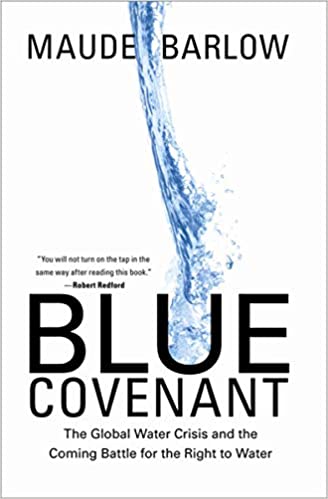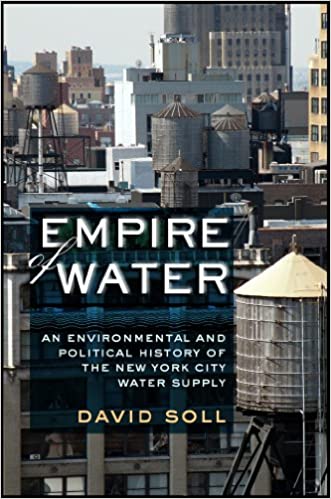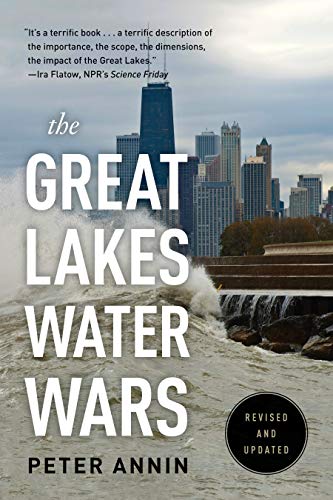
March 5, 2016Assembly Sponsor Says Water Withdrawal Law Ripe for RevisitingIn a stunning revelation, John Ferro reports in the Poughkeepsie Journal this week that a key state legislator at the time New York's new water withdrawal permitting law was passed in 2011 is not in agreement with DEC's interpretation of the law. See DEC's handling off water regs criticized. The article reports that Ferro interviewed the assembly sponsor of the legislation, former Assembly Environmental Conservation Committee Chair, Robert Sweeney of Long Island. Sweeney's sponsorship and support as Assembly EnCon chair was critical to passage of the legislation in 2011. Sweeney retired in 2014. After Sweeney and Ferro discussed DEC’s position that the law compels them to issue the permits without any environmental review, Sweeney told Ferro that DEC’s handling of water withdrawal permit applications is not “in keeping with the letter and spirit of the legislation.” Sweeney said, “if it was clear to us at that time that they were going to take the position that they eventually took, we would have objected.” Sweeney told Ferro the legislation was meant to provide information to help guide future decisions and legislation. “But you certainly can’t determine what the impacts of water usage and water withdrawals are without having information,” he said. If he was still in the Assembly, Sweeney said the DEC's handling of the law would be “ripe for revisiting.” The interview with Sweeney is contained in Ferro's third article in his series in the Poughkeepsie Journal on DEC's implementation of New York's new water withdrawal law and regulations. I reported on his earlier articles in No Review for IBM Application to Take 86 MGD from Hudson River and Former State Assembly Leader Disputes DEC Interpretation of Water Permitting Law. The latest article notes that Sweeney's comments come after similar concerns were expressed by Dutchess County Executive and former state Assemblyman Marcus Molinaro and by environmental groups, some of which are challenging the DEC's actions in court. Sweeney's concern that DEC is failing to collect information to help guide future decisions and legislation is echoed by others. “With the right information, the rate and timing of the withdrawal could be geared to be more protective,” Kate Hudson, director of cross-watershed initiatives at Riverkeeper is quoted as saying. I am quoted as a lawyer representing the Sierra Club and the Hudson River Fisherman's Association in their lawsuits against the DEC as saying that the new legislation “is not doing anything to assist in understanding our state’s use of water resources. It’s just giving away privileges.” The article notes that Governor Cuomo has underscored the need to know more about surface and groundwater conditions following revelations of lead contamination in Flint, Michigan, and chemicals in drinking water in Hoosick Falls, Rensselaer County. A spokesman for Sweeney's successor as chair of the Assembly Environmental Conservation Committee, Assemblyman Steven Englebright from Suffolk County, told Ferro that questions about the water withdrawal law may be raised during hearings on drinking water scheduled for April. [Those hearings have been postponed.] However, Englebright's counterpart in the state Senate, Senator Thomas O'Mara from Chemung County who chairs the Senate's Environmental Conservation Committee, told Ferro it was “clearly understood” at the time the law was passed that there would be no environmental review of the entities seeking the permits. O'Mara said the law received support from business groups in large part because they believed no review would be triggered. A spokesman Ferro interviewed from the Business Council of New York State, Darren Suarez, the group's government affairs director, told Ferro the Council supported the legislation because it reflected a balance between the state’s “aspirational environmental goals and the need to provide consistency and predictability to the regulated community.” If the department was required to conduct environmental reviews on every permit, Suarez said, “every manufacturing facility would face untold uncertainty until new permits were issued.” Posted by Rachel Treichler on 03/05/16, updated 06/05/16.
Copyright 2021, Rachel Treichler
|
|






